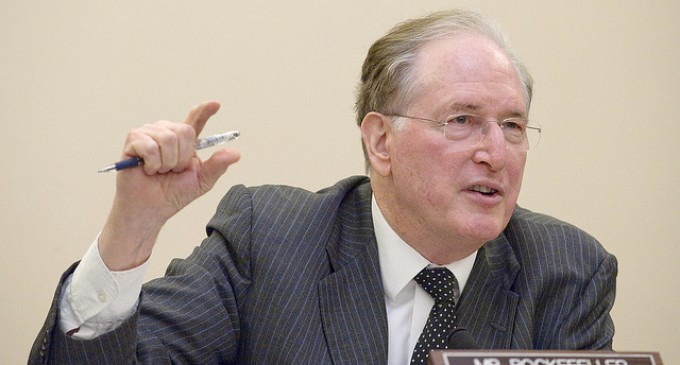
Although Sen. Jay Rockefeller comes from one of America’s wealthiest families, he still feels he must travel by private charter at $4,400 a pop and bill taxpayers for the trips, all the while he could take a $206 commercial flight.
He also feels he must charge taxpayers for amounts as little as $12.75 while he is “in and around Charleston.”
His estimated net worth is $100 million and he lives in a $18 million dollar home that has 11 bathrooms on one floor alone.
Full Story Next Page:

Parasite
he’s a boyscout compared to that idiot in the white house
Let this clown pay for his own travel or reimburse him only $206
And which Party is he again?
He would be serving for free as and pay his own expense if he really loved America. Save the money for places of need . what is his home state? They could do what is needed here, someone who is not afraid to push.
sad.
These people are s$#%&!@* all of them
Just shows what corrupt sorry no good bastards we have in washington
Surprise,surprise.
Repeal the 17th Amendment. This amendment overturned the power of the State legislatures to elect their own senators and replaced it with a direct, popular vote. This was another serious blow against State sovereignty. The framers of the Cons$#%&!@*ution desired that the influence and power in Washington, D.C., be kept as close to the people and states as possible. For example, the number of representatives in the House of Representatives was to be decided by a limited number of voters. In the original Cons$#%&!@*ution, the ratio of “people of the several States” deciding their House member could not exceed “one for every thirty thousand.” (Article. I. Section. 2. Paragraph. 3.) And when it came to the US Senate, the framers also recognized the authority of each State legislature to select its own senators, thereby keeping power and influence from aggregating in Washington, D.C. The 17th Amendment seriously damaged the influence and power of the states by forcing them to elect their US senators by popular vote. The bigger the State, the less influence the State legislature has in determining its US senator. Senators who answered to State legislators, each answering to a limited number of voters, were much more accountable to the “citizens of the several States” than those who were elected by a large number (many times numbering into the millions) of people. For all intents and purposes (at least in the larger states), US Senators are more like “mini-Presidents” than representatives of sovereign states. The states lost their representation in the U.S. Congress in 1913 and have been nothing but door mats for the General Government ever since.